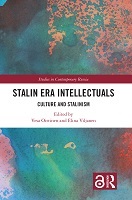Chapter 4 ‘Menshevising Idealism’ and Stalinisation of Philosophy
Proposal review
Abstract
The turbulent events of Stalin’s ‘Great Break’ have often been seen as a turning point and the beginning of a Stalinist politics sensu stricto. A sharp philosophical debate occurred at this turning point. This chapter discusses how this shift occurred in Soviet Marxist philosophical circles. It analyses the concept of ‘Menshevising Idealism’, an idea coined (maybe by Stalin himself) during the philosophical campaign around the year 1930. It targeted mainly the Deborin school of early Soviet philosophy. Deborin and his supporters were accused of ‘Hegelianising’ Marxism and of not understanding the significance of the new, Leninist stage of Marxist theory. The concept of Menshevising Idealism has later almost unanimously been viewed by scholars as a Stalinist label without any real content. While it is true that Stalin and his circle utilised the campaign against the Deborinites for their own purposes, there nevertheless were some real weaknesses in the philosophy of the Deborin School. One sign of this weakness is that such thinkers as Georg Lukács, Mikhail Lifshits and, later, Evald Ilyenkov all criticised the Deborin School even though they did not accept the Stalinist methods of its suppression.
Keywords
Menshevising Idealism, Deborin, Stalinism, Ilyenkov, Lifshits, LukácsDOI
10.4324/9781003219835-4ISBN
9781032114200, 9781032114217, 9781003219835Publisher
Taylor & FrancisPublisher website
https://taylorandfrancis.com/Publication date and place
2023Imprint
RoutledgeClassification
Politics and government


 Download
Download